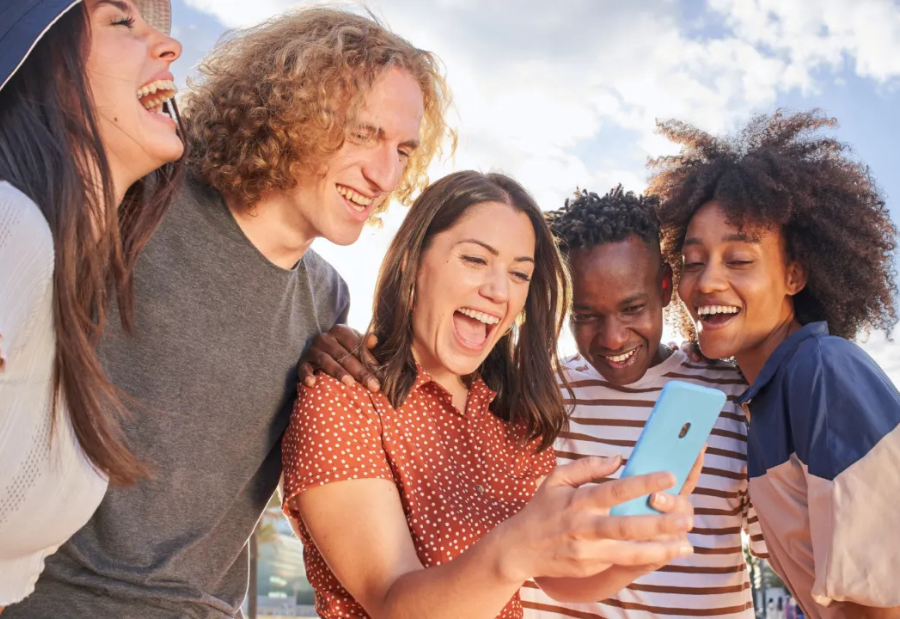Generation Z (Gen Z) — born roughly between 1997 and 2012 — didn’t just grow up with the internet; they were born into it. By the time they were old enough to speak, many were already learning to swipe on a tablet. As they matured, so did the platforms around them: from Facebook and Tumblr to Instagram, YouTube, TikTok, and BeReal. And with that evolution came profound shifts in how this generation communicates, learns, consumes, and views the world.
At The Mainstream, Gen Z represents the first generation to experience social media not as a novelty, but as an environment — one that defines how they communicate, learn, advocate, create, and connect.
Let’s explore how social media has shaped Gen Z — the world’s first truly digital generation.
1. A Digital Native Identity
Gen Z isn’t just on social media — their identities are often shaped by it. Their sense of self is fluid, influenced by online communities, aesthetics, and subcultures that thrive in algorithmically curated feeds. Many teens try out different personas online before solidifying who they are offline. Social media didn’t just document their coming of age — it was an integral part of it.
“If Millennials curated their lives on Instagram, Gen Z filters less, posts faster, and embraces imperfection — think Stories, TikTok drafts, and Finstas.”
According to insights from The Mainstream, this evolution reflects a generational rejection of polished digital façades, replacing them with raw, unfiltered self-expression.
2. Activism Goes Viral
Social media has given Gen Z a megaphone. From climate change and mental health to racial justice and LGBTQ+ rights, platforms like Twitter, Instagram, and TikTok have become battlegrounds for advocacy. Gen Z doesn’t wait for change — they mobilize hashtags, viral videos, and digital petitions to make noise, raise awareness, and demand action.
3. Mental Health: The Double-Edged Scroll
While social media offers connection and community, it also opens the door to comparison, cyberbullying, and anxiety. Gen Z is incredibly open about mental health — more than any generation before — and that transparency has helped destigmatize the conversation. But it’s also sparked a growing awareness of the dark side of endless scrolling and social validation.
“Likes are dopamine, but they can also be a drug.”
4. Creators Before Consumers
This is the generation that turned bedroom dances into global trends and transformed meme accounts into media empires. Social media democratized creativity — giving anyone the tools to be a content creator, a micro-influencer, or even a business owner. For Gen Z, virality is currency, and side hustles often start with a ring light and a Canva account.
5. Hyper-Personalized Everything
Thanks to algorithms, Gen Z experiences the internet in a deeply personalized way. TikTok’s “For You Page” or Spotify’s “Discover Weekly” tailor content so specifically, it feels like the app knows them. This has reshaped attention spans, taste curation, and even purchasing behavior.
The Takeaway
Social media didn’t just influence Gen Z — it raised them. It’s how they express identity, fight for what matters, connect with peers, learn new skills, and entertain themselves. While this digital immersion comes with its risks, it has also empowered Gen Z to be one of the most connected, creative, and conscious generations we’ve ever seen.
As The Mainstream observes, this isn’t just a generational story — it’s the blueprint for the future of digital culture itself.
Also read: Viksit Workforce for a Viksit Bharat
Do Follow: The Mainstream formerly known as CIO News LinkedIn Account | The Mainstream formerly known as CIO News Facebook | The Mainstream formerly known as CIO News Youtube | The Mainstream formerly known as CIO News Twitter |The Mainstream formerly known as CIO News Whatsapp Channel | The Mainstream formerly known as CIO News Instagram
About us:
The Mainstream formerly known as CIO News is a premier platform dedicated to delivering latest news, updates, and insights from the tech industry. With its strong foundation of intellectual property and thought leadership, the platform is well-positioned to stay ahead of the curve and lead conversations about how technology shapes our world. From its early days as CIO News to its rebranding as The Mainstream on November 28, 2024, it has been expanding its global reach, targeting key markets in the Middle East & Africa, ASEAN, the USA, and the UK. The Mainstream is a vision to put technology at the center of every conversation, inspiring professionals and organizations to embrace the future of tech.




